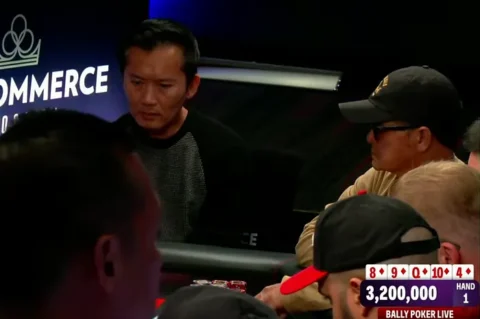The online poker community was recently shaken when multiple players were caught cheating during high-stakes games on GGPoker. The scandal involved players using real-time assistance tools (RTAs) and other forms of unfair advantage to manipulate game outcomes. These tools, which provide optimal moves and betting strategies, undermine the skill-based nature of poker and create an unfair playing field.
GGPoker’s security team swiftly intervened, conducting thorough investigations and banning multiple accounts involved in the cheating scheme. This crackdown not only led to financial penalties for the offenders but also prompted discussions about whether permanent bans should extend to live poker events such as the WSOP. In response, Josh Arieh, a GGPoker pro, confirmed that the site is taking a firm stance and advocating for long-term consequences to deter future cheating attempts.
This incident has reignited discussions about the security measures online poker sites employ to maintain integrity in the game. As a result, GGPoker pro Josh Arieh vowed that these offenders would face bans from prestigious events like the WSOP. This incident has reignited discussions about the security measures online poker sites employ to maintain integrity in the game.
With a high volume of players participating in online poker games daily, ensuring fairness and preventing cheating is a top priority for major platforms. Advanced security systems, anti-collusion detection, and strict account verification processes are just a few measures in place to protect the competitive environment.
Advanced anti-cheating technologies
Modern poker sites utilize sophisticated software to detect suspicious activities. AI and machine learning analyze player behavior to spot patterns linked to collusion, bot usage, or real-time assistance. Hand history reviews allow poker sites to monitor betting patterns and identify any irregular activity. To prevent multi-accounting and ghosting, platforms track IP addresses and device usage. Also, certified random number generators (RNGs) ensure fair card distribution by eliminating the possibility of manipulation.
Many poker sites also use biometric security measures, such as fingerprint or facial recognition, to improve player authentication and prevent account sharing. Advanced fraud detection systems compare player activities with global databases to identify suspicious patterns and stop known offenders from accessing the platform. Regular independent audits by third-party agencies further enhance fairness and transparency, ensuring that gaming algorithms stay unbiased and free from manipulation. These combined efforts make modern poker platforms more secure than ever before.
Multi-account detection and collusion prevention
Collusion—when two or more players work together to gain an unfair advantage—is a major concern in online poker. To combat this, sites implement several measures:
- Real-time monitoring systems: These analyze hand actions in real-time to detect potential collusion.
- Seating restrictions: Players are prevented from selecting their seats to minimize the risk of teaming up at a table.
- Data analytics tools: Advanced analytics identify unnatural win rates and gameplay trends among suspected colluders.
- Player reports and reviews: Many sites allow players to report suspicious activity, which security teams then review for further action.
Strict identity verification and KYC compliance
To prevent fraudulent accounts and money laundering, poker platforms enforce strict Know Your Customer (KYC) policies. Players must provide official photo identification and proof of residency, such as utility bills, to verify their accounts. Some platforms also require a live selfie or video verification to ensure that the individual matches the submitted documents.
Besides, poker sites track deposit and withdrawal patterns to detect suspicious financial activities, flagging accounts that show irregular transactions. Multi-factor authentication (MFA) is often required for login and withdrawals, adding an extra layer of security. Some platforms also conduct periodic re-verifications, requiring players to update their identification documents to maintain an active account.
Withdrawal security checks go beyond basic verification, often including a review of gameplay activity to ensure funds were acquired fairly. Sites may also implement cooling-off periods for large transactions, ensuring that withdrawals are not the result of illicit activities or unauthorized access.
Fair play and responsible gaming initiatives
Beyond security measures, leading poker platforms promote fair play by offering self-exclusion options for players struggling with gambling. Deposit limits help prevent excessive spending, while behavioral analysis tools monitor for signs of problem gambling and provide resources for responsible gaming support. Many sites also offer reality checks, which provide reminders of session length and expenditure to encourage responsible gaming habits.
Poker platforms collaborate with gambling addiction support organizations, providing direct links to professional assistance. Some sites use AI-driven monitoring to detect erratic betting behavior and flag potential problem gambling cases for intervention. Platforms also offer temporary account suspension options, allowing players to take controlled breaks. Also, automated notifications alert users when their gameplay exceeds healthy limits, encouraging responsible gaming habits.
A Constant battle to maintain integrity
As online poker continues to grow, so do the methods employed by cheaters. However, poker operators remain vigilant, constantly improving their security protocols to stay ahead of malicious activities. While incidents like the recent GGPoker cheating scandal highlight the challenges, they also demonstrate the commitment of poker sites to enforcing fair play and maintaining the integrity of the game.














